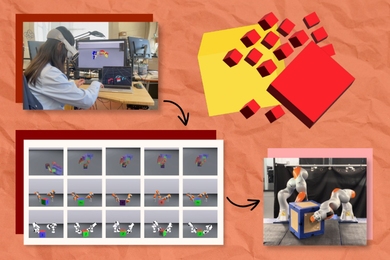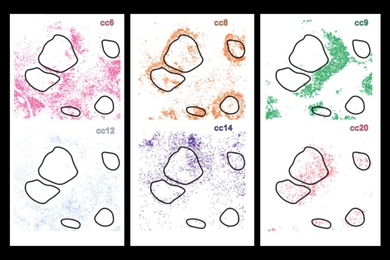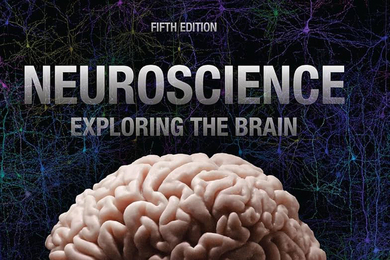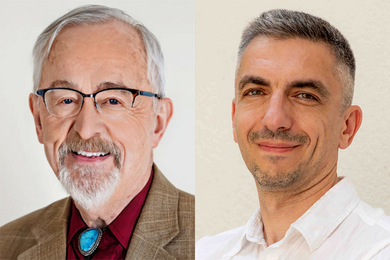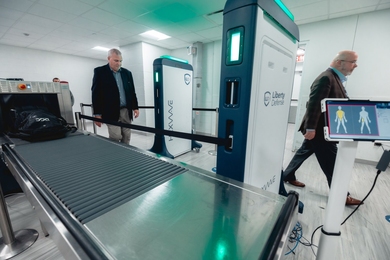Secretary Federico Pe���a of the US Department of Energy (DOE) has announced that a $10.9 million grant has been awarded to the Whitehead Institute for Biomedical Research.
The $16 million in grants to Whitehead and four other recipients will provide additional technology, expertise and resources to DOE's Joint Genome Institute, a "virtual institute" that integrates human genome research based in three of DOE's national laboratories (Lawrence Berkeley National Laboratory and the Lawrence Liver-more National Laboratory in California, and the Los Alamos National Laboratory in New Mexico).
The Joint Institute's principal goal is to sequence or decode a substantial fraction of the total human DNA by 2005 and share that information through scientific databases more quickly, cheaply and accurately.
Professor of Biology Eric S. Lander, director of the Whitehead/MIT Center for Genome Research and principal investigator of the DOE grant, said Whitehead will work with DOE to develop an automated system that integrates DNA sample preparation, DNA sequencing with available instruments, and sequence data analysis. The system will be modular so that individual units, representing different steps in the overall sequencing process, can be readily adjusted.
Other DOE grants ranging from $800,000 to $1.7 million went to Stanford University, the University of Florida at Gainesville, Immusol Inc. of San Diego, and the University of California at Berkeley.
With the grants, the universities will help develop the technology needed by the Joint Institute to set up a cost-effective, highly automated DNA sequencing assembly line. This genome-sequencing "factory" in Walnut Creek, CA, is scheduled to begin operation in August, with sequencing goals of 20 million bases of DNA in fiscal 1998, 40 million bases in 1999, and eventually 100 to 200 million bases per year. About 6,000 genes of the estimated 60,000-80,000 human genes have now been mapped to particular chromosomes and roughly 2.5 percent of the human genome has been sequenced as part of the Human Genome Project.
The DOE and the National Institutes of Health coordinate the Human Genome Project. DOE's involvement grew out of a historical congressional mandate to study the health effects of radiation and the resulting expertise at the DOE's laboratories in this field.
A version of this article appeared in MIT Tech Talk on April 8, 1998.
